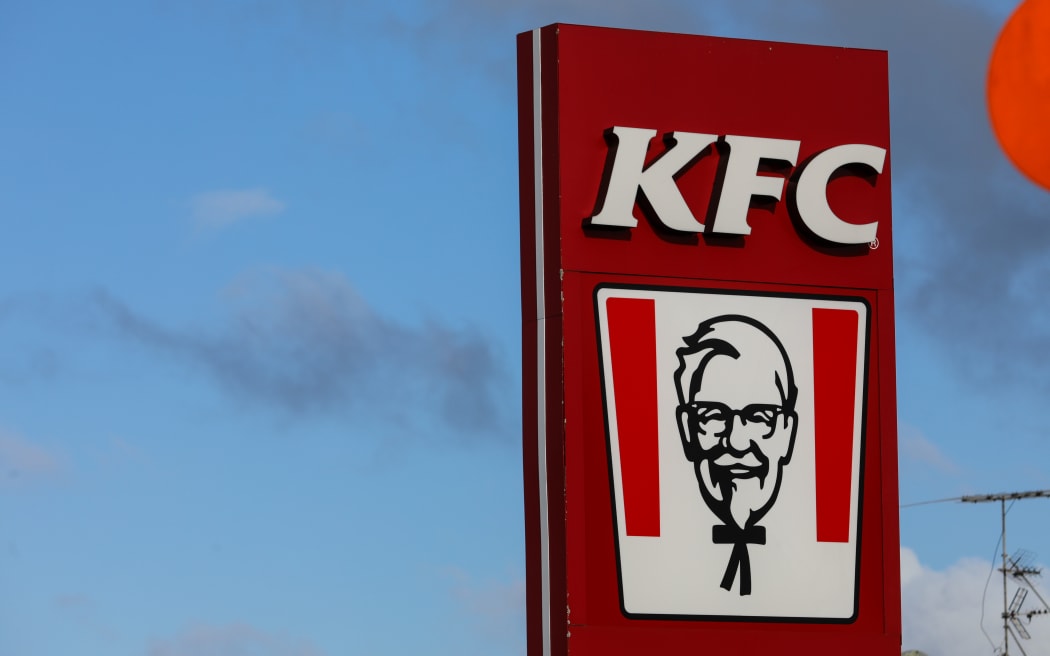Restaurant Brands' profits slump more than 85 percent

The group, which operates in four regions, with KFC, Taco Bell, Carl's Jr and Pizza Hut brands, said sales had grown across all divisions but high input costs exceeded expectations.
Key numbers for the six months ended June compared with a year ago:
- Net profit $2.2m vs $15.3m
- Revenue $640m vs $584.9m
- Operating earnings $78.3m vs $85.4
Restaurant Brands New Zealand chairman José Parés said total store sales hit a new high of $640.2 million, up 9.4 percent on the same time last year, supported by a strong US dollar and the opening of 10 new stores.
However higher input costs and increased funding costs on the back of higher interest rates impacted the company's first half performance, Parés said.
"Additionally, labour market pressures have caused adverse staff shortages, requiring many stores across our network to reduce operating hours and/or operate with reduced capacity.
"The business has implemented a strategic programme of price increases and cost control measures to relieve margin pressures.
"However, we were not able to raise prices to fully offset the cost increases during the period without significantly impacting transaction volumes."
Acting group chief executive officer Arif Khan said price increases in the second half of the year would be closely monitored against macroeconomic factors and sales volumes.
"We continue to fine-tune operations across the business to ensure our systems and processes are fit for purpose to meet the challenges of the volatile economic environment and our growing store network," he said.
"This includes improvements to several of our internal systems, which will streamline and enhance end-to-end processes over contracting, procurement, pricing, hiring and inventory management, improving margin controls."

Khan expected the company's full-year profit to be in the range of $12m to $16m, down from last year's $32.1m.
'Disappointing' - analyst
Forsyth Barr analyst Margaret Bei said the half-year results were disappointing, with a significant decline in profit on the prior corresponding period and below the firm's expectations.
"RBD reiterated that significant inflationary pressures have impacted the group in all markets, and 1H [the first half-year] was particularly affected by challenging conditions in New Zealand, reflecting ingredient and input cost increases, and labour shortages in 1Q23 [first quarter] driving reduced store hours across all brands," she said.
Bei said the increase in sales was primarily driven by price increases and easing of Covid-related trading conditions, though this was offset by "significant cost pressures on ingredients and input costs as well as labour shortages disrupting the ability to operate at full trading hours across all stores and channels".
The company's Australian stores performed the strongest of the company's divisions, driven by a significant recovery in the central city and mall margins from higher sales volume.
The group, which operates in four regions, with KFC, Taco Bell, Carl's Jr and Pizza Hut brands, said...
The group, which operates in four regions, with KFC, Taco Bell, Carl's Jr and Pizza Hut brands, said sales had grown across all divisions but high input costs exceeded expectations.
Key numbers for the six months ended June compared with a year ago:
- Net profit $2.2m vs $15.3m
- Revenue $640m vs $584.9m
- Operating earnings $78.3m vs $85.4
Restaurant Brands New Zealand chairman José Parés said total store sales hit a new high of $640.2 million, up 9.4 percent on the same time last year, supported by a strong US dollar and the opening of 10 new stores.
However higher input costs and increased funding costs on the back of higher interest rates impacted the company's first half performance, Parés said.
"Additionally, labour market pressures have caused adverse staff shortages, requiring many stores across our network to reduce operating hours and/or operate with reduced capacity.
"The business has implemented a strategic programme of price increases and cost control measures to relieve margin pressures.
"However, we were not able to raise prices to fully offset the cost increases during the period without significantly impacting transaction volumes."
Acting group chief executive officer Arif Khan said price increases in the second half of the year would be closely monitored against macroeconomic factors and sales volumes.
"We continue to fine-tune operations across the business to ensure our systems and processes are fit for purpose to meet the challenges of the volatile economic environment and our growing store network," he said.
"This includes improvements to several of our internal systems, which will streamline and enhance end-to-end processes over contracting, procurement, pricing, hiring and inventory management, improving margin controls."

Khan expected the company's full-year profit to be in the range of $12m to $16m, down from last year's $32.1m.
'Disappointing' - analyst
Forsyth Barr analyst Margaret Bei said the half-year results were disappointing, with a significant decline in profit on the prior corresponding period and below the firm's expectations.
"RBD reiterated that significant inflationary pressures have impacted the group in all markets, and 1H [the first half-year] was particularly affected by challenging conditions in New Zealand, reflecting ingredient and input cost increases, and labour shortages in 1Q23 [first quarter] driving reduced store hours across all brands," she said.
Bei said the increase in sales was primarily driven by price increases and easing of Covid-related trading conditions, though this was offset by "significant cost pressures on ingredients and input costs as well as labour shortages disrupting the ability to operate at full trading hours across all stores and channels".
The company's Australian stores performed the strongest of the company's divisions, driven by a significant recovery in the central city and mall margins from higher sales volume.









Leave a Comment